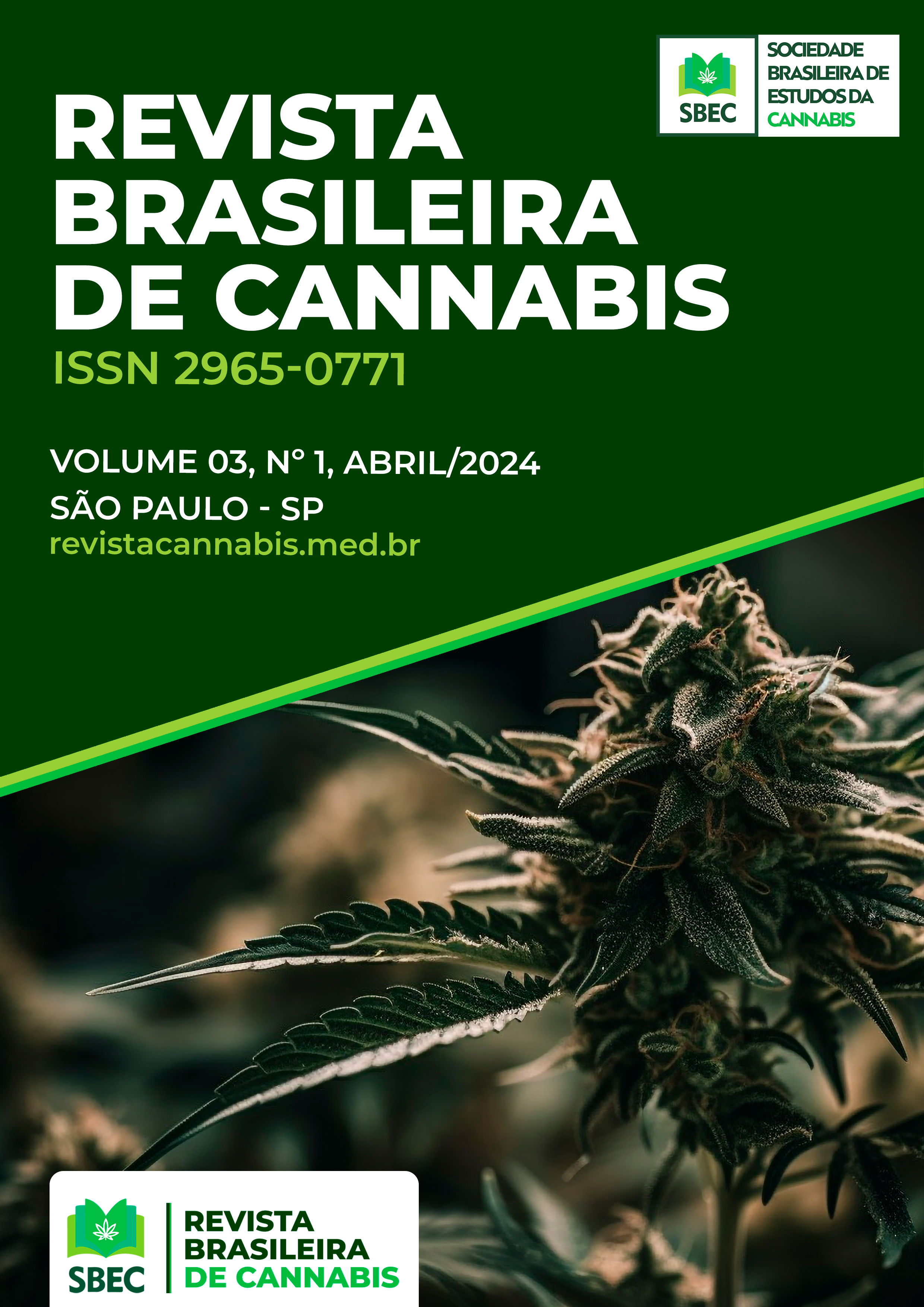Efficacy of Phytocannabinoids in the Management of Cancer Pain: An Integrative Review of Randomized Clinical Trials
DOI:
https://doi.org/10.58731/2965-0771.2024.49Keywords:
medical marijuana, cannabinoids, cancer pain, pain managementAbstract
Introduction: Cannabis sativa L. has been used by humans for thousands of years, and its therapeutic potential has been studied in recent decades as an alternative for cancer pain management. However, the amount of scientific evidence that corroborates the use of this drug in clinical practice is still scarce. Therefore, the objective of this study is to make an integrative review of randomized clinical trials on the efficacy of the use of phytocannabinoids for the management of cancer pain.
Methods: The search for articles was performed using the descriptors: "cannabis" and "cancer pain". The inclusion criteria were randomized clinical trials, articles published between 2002 and 2023, and the use of the English language.
Results: Six randomized clinical trials met the criteria, and in all of them, the use of cannabis was adjuvant to other analgesic therapies. The analyzed studies are contradictory regarding the efficacy of cannabis in the treatment of cancer pain. Four studies suggest that cannabis has the potential to reduce the intensity and improve the perception of pain. Adverse effects associated with treatment were reported in five studies. The maintenance of cannabis use for the predetermined period and the definition of a global pain scale were some of the limitations presented by the papers.
Conclusion: The studies in this review are divergent regarding the analgesic potential of phytocannabinoids in cancer pain, and more research should be conducted to foster evidence on the use of this therapy.
Downloads
Published
How to Cite
Issue
Section
License
Copyright (c) 2024 Revista Brasileira de Cannabis

This work is licensed under a Creative Commons Attribution 4.0 International License.





